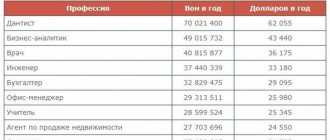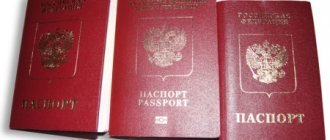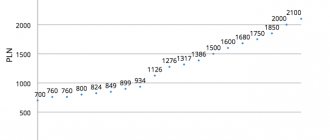Features of life
Let's consider key indicators of the population's well-being. From them you can see how high the standard of living is in Denmark. One of the main features of the country is its leading position in many areas, despite its small territory and scarce resources.
Climate and ecology
The country is located on the Jutland Peninsula and occupies a mostly flat area with partial glaciation. Denmark has a mild maritime climate. In summer, the air warms up to an average of 15–17 °C. Autumn and spring are not characterized by sudden temperature changes. The country is relatively warm in winter. The minimum average temperature is -1 oC. Due to its proximity to the sea, the country experiences frequent precipitation. The weather can change several times during the day.
Modern authorities pay great attention to environmental concerns. Every year the Danes plant 3,000 hectares of forest. Gradually, through the efforts of the government, the area, which was significantly thinned out by poachers in the 19th and 20th centuries, is being restored. local fauna.
Mentality
Unlike many neighboring European powers, Denmark is a kingdom. Monarchical sentiments are quite high here, despite the constitutional system. Queen Margret II is respected and loved, her opinion is listened to.
The country honors the traditions of the Vikings and its past warlike culture. In a man, masculinity, strength, and the ability to make decisions are valued. The country's population is punctual. Responsibility is valued in people. Everyone rides bicycles around the cities, goes to gyms, and prefers active recreation.
Lifespan
In terms of demographic indicators, the Kingdom is doing well. The birth rate exceeds the death rate – 11.4 to 10.4 people per 1000 population, respectively. The birth rate is 1.6 children per woman. Infant mortality is 4.5 cases per 1000. Average life expectancy, according to experts, in 2013 is 80 years (78 men, 82 women). This is one of the best results in the world.
What is the cost of living in Russia and countries around the world in 2021
- bread (30-60 rub.);
- cereals (30-60 rubles);
- flour (30-40 rubles);
- potatoes (15-30 rubles);
- other vegetables (30-40 rubles);
- fresh fruit (50-100 rub.);
- sugar (30-50 rubles);
- meat or poultry (200-600 rub.);
- fresh fish (400-800 rub.);
- dairy products (50-80 rubles);
- chicken eggs (60-100 rub.);
- vegetable oil (100-150 rubles);
- tea (100-300 rubles per 200 g package).
European states
In the Federal Republic of Germany, which only began fixing a living wage last year, on January 1, 2021, the minimum wage was set at 1,473 euros per month. The minimum in Ireland is also close to this figure, where its size, however, has not changed since 2021.
Denmark is a fairly expensive country, so real estate in Denmark costs a lot of money. But despite this, more and more property is acquired every year. Such demand for real estate in Denmark is created by the level of stability in the country and the cost of rental housing. It is based on these indicators that having property in this country is a profitable investment that can pay for itself in the future. During the year, real estate prices have not changed, just like the purchase procedure itself.
the cost of living
The financial situation of the population is good. However, the cost of living in Denmark may seem unreasonably high for someone coming from Russia.
Living wage
You can live quite modestly in the regions for 1200–1300 € per month. In the capital, costs increase by 20–30%. The living wage in Denmark is not officially fixed. Therefore, the amounts indicated are approximate. Let's look at specific cost indicators.
Product prices

Denmark is not known for its spacious pastures and fertile soils. Of course, this leads to an increase in the cost of the food basket.
| Product | Price 1 kg/l in € |
| Chicken | 7.5 |
| Beef | 11 |
| Milk | 1 |
| Cheese | 9.5 |
| cucumbers | 2.5 |
| Potato | 1.5 |
| Eggs (10 pcs.) | 3 |
| Bread | 4 |
| Rice | 1.8 |
| Beer | 2 |
| Wine | 7.5 |
| A pack of cigarettes | 3.5 |
| Juice | 3 |
| Apples | 2.5 |
| Oranges | 2.5 |
It is important to note that Denmark is not part of the eurozone. Payments are made in local kroons.
Real estate
Housing in the capital is expensive. A square meter in Copenhagen will cost 3800–6000 €. In the regions, prices start from 1500 €. Local legislation strictly restricts foreigners wishing to purchase real estate in the country:
- a ban has been established on the sale of houses and apartments in the coastal area;
- a citizen of another country does not have the right to a mortgage;
- the purchase of real estate is not a reason for a simplified procedure for obtaining a residence permit;
- the acquisition of housing by a person who is not a Danish citizen requires permission from the Ministry of Justice.
The listed restrictions are designed to reduce the demand for already expensive housing. Another reason for the bans is the desire to provide an advantage to one’s own citizens and to deny access to the country to foreign migrants who do not want to work, but live on benefits.
Rental of property
In the capital, a one-bedroom apartment can be rented for €1,000. In the regions, rent is 1.5–2 times cheaper. Foreigners should pay attention to the high cost of utilities - all together 120–130 €. Internet payments cost an average of 30 € per month.
Minimum and average salary in Denmark
How and how much does it take to get from Copenhagen Airport to the city? There are several ways to get from Kastrup Airport to the center of Copenhagen: Metro or train. They will take you to the center in 15 minutes. Ticket costs 36 CZK How to get around the city? How much does public transport cost? Copenhagen's public transport system includes buses, subways and transit. The cost of the train depends on the zone; for example, to travel to the airport you need a pass for three zones.
Living Wage Denmark; Standard of living in Denmark; Living Wage Per Day in Denmark; Living wage in Denmark; Subsistence.
Employment in the country
To work in Denmark, a foreigner will need to enter into a formal agreement with the company. After employment, you need to register with the state migration control authority. Traditionally, the kingdom has many vacancies in agriculture (migrants with minimal education are accepted), in the fishing industry (work in Greenland), in the field of medicine and in the environment.
The Danes also experience a shortage of programmers. There are many vacancies in the field of human resources management on the labor market. To confirm their qualifications, a foreigner will need to undergo a complex procedure for nostrification of a national diploma or graduate from a local university.
Denmark again tops the ranking of the most expensive EU countries
Eurostat calculated prices in 27 EU countries. Scandinavian countries expectedly topped the ranking. The most expensive country in Europe, as last year, is Denmark, where prices for services and consumer goods are 42% higher than the European average. Second place went to Sweden, where prices are 28% higher. Finland closes the top three. According to official data, the cost of living in Denmark is 14,500 euros per year, in Sweden it is two thousand per year less, in Finland - less than 12 thousand euros per year. When compiling the rating, Eurostat specialists took into account the cost of food and soft drinks, alcohol and cigarettes, clothing, household goods, transport fares and tourism services.
VLADIMIR SOLOVIOV: “It’s white nights in St. Petersburg now. What was happening there! After the victory, the city turned into one huge fan zone. It’s 2-3-4 o’clock in the morning, I’m already on my way to the airport, and the city is ringing: “Russia, Russia. ". For the people it is a holiday. But for the Russian team it’s everyday work.”
We recommend reading: How to register an apartment when using maternity capital
Salary
Incomes of the population correspond to the highest European indicators. Salaries in Denmark, even for unskilled workers, will not be lower than 2000 € per month. Specialists earn much higher:
- the doctor’s salary is kept at 5000 €;
- average salaries in the IT sector – 3500 €;
- teachers receive the same €3,500;
- in the field of accounting, income remains at 4000 €;
Students working part-time earn an average of 1,500 € per month.
Minimum wage
Local legislation has limited interference in the labor market. There is simply no minimum wage established by law here. However, the minimum hourly rate is approximately 14.5 €. The monthly salary starts from 2000 € for a full work week (37 hours).
Average

This indicator depends on the region and profession. The average salary in Denmark, taking into account taxation, slightly exceeds 3,000 €. Every year, salaries grow by 2–2.5%. This is the result of the work of trade unions, which represent 85% of the Kingdom's workers.
Maximum
The richest Danes are top managers of companies. Their salaries are at the level of 13,000 €. Surprisingly, dentists are stepping on their heels. Their salaries are almost in no way inferior to the income of major bosses. Thus, wages in Denmark are higher than the European average. However, there was a fly in the ointment here.
average salary
Compared to other Scandinavian countries, the average salary in Denmark is high. After paying all taxes - 3,270 euros. At the same time, men's salaries are on average higher than women's: 3,430 and 2,960 euros, respectively.
| Salary in Denmark by profession | ||
| Profession | CZK per month | Euro per month |
| Company managers | 101 332,53 | 13 595 |
| Doctors | 69 238,74 | 9 290 |
| Pharmacists | 63 617,55 | 8 535 |
| Financial analysts | 62 331,81 | 8 365 |
| Lawyers | 60 341,41 | 8 095 |
| Dentists | 58 467,41 | 7 845 |
| Engineers | 55 296,45 | 7 420 |
| Scientists | 53 678,63 | 7 200 |
| Programmers | 53 669,35 | 7 200 |
| Accountants | 53 046,71 | 7 120 |
| Journalists | 48 232,13 | 6 470 |
| Teachers in secondary schools | 46 467,04 | 6 235 |
| Teachers at universities | 44 891,20 | 6 020 |
| Nurses | 38 676,90 | 5 185 |
| Janitors (garbage collectors) | 34 452,13 | 4 615 |
| Builders (masons, joiners, carpenters) | 33 759,94 | 4 530 |
| Security guards | 31 601,05 | 4 240 |
| Agricultural specialists | 29 383,80 | 3 940 |
| Drivers | 27 977,16 | 3 750 |
| Sellers (retail) | 24 834,64 | 3 330 |
Average starting salary (including for foreigners)
8 out of 10 students in Denmark combine work and study, starting to work at 18 years of age. The average rate is 1,500 euros. This is the income of a farm worker, handyman or waiter (excluding tips and overtime). Migrant workers can also claim the same level of earnings. But this takes into account the fact that the employment will be legal - without suitable documents you cannot count on a decent salary.
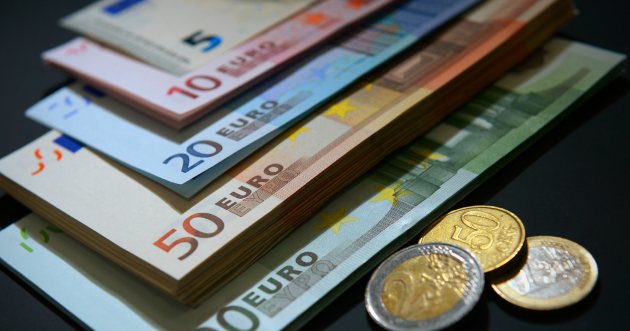
The average salary fluctuates between 1,500 euros per month
As in most developed countries, without professional experience and high qualifications, settling in Denmark is problematic for CIS citizens. It is very difficult to get a job without knowing the national language, despite the fact that there are a large number of vacancies in various fields of activity on the labor market. An exception to this may be a highly qualified specialist with a narrow profile. Due to the complex and specific work, he can apply for high positions in any organizations except municipal and state ones.
Immigrants from Eastern Europe can work in the following fields:
- Junior category medical personnel: nurses, nurses;
- Pharmacists;
- Social Security Workers;
- Cleaning company employees: janitors, cleaners, garbage collectors.
The most common and good option would be seasonal offers to work on farms and in greenhouses. The point is to collect berries, fruits, vegetables and grains. The average earnings they can expect is at least 11 euros per hour. Concluding an agreement with a Danish employer allows you to increase your earnings to 15 euros. Another option for calculating the wages of migrant workers working “on the ground” is piecework payment. In this case, prices may vary depending on the type of work. Seasonal offers are in demand during the summer period, which begins at the beginning of May and ends at the end of September. For successful employment, the applicant will need a minimum knowledge of the English language, ensuring that he receives tasks for the day.
| Salary in Denmark by economic sector | ||
| Profession | CZK per month | Euro per month |
| Financial and insurance activities | 55 385,01 | 7 430 |
| Supply of electricity, gas, steam and air conditioning | 53 156,70 | 7 130 |
| Information and communication | 50 853,30 | 6 815 |
| Professional, scientific and technical activities | 48 523,30 | 6 510 |
| Mining and quarrying | 47 559,72 | 6 380 |
| Business services | 41 214,25 | 5 530 |
| Production | 41 131,27 | 5 520 |
| Public administration | 40 959,20 | 5 495 |
| Education | 40 674,61 | 5 460 |
| Real estate transactions | 39 217,94 | 5 265 |
| Transportation and storage | 37 967,83 | 5 095 |
| Water supply, sewerage and waste management | 37 806,24 | 5 075 |
| Wholesale and retail trade | 37 307,62 | 5 005 |
| Construction | 37 186,24 | 4 990 |
| Fisheries, Agriculture and Forestry | 35 939,77 | 4 820 |
| Arts, entertainment and recreation | 35 289,01 | 4 735 |
| Health and social work | 34 829,23 | 4 675 |
| Tourist and cleaning services | 33 411,72 | 4 485 |
| Accommodation and meals | 27 788,60 | 3 725 |
| other services | 41 079,34 | 5 515 |
Taxes
The Kingdom has a progressive taxation scale. The personal income tax level reaches 56.5% (with an annual income of over 524.3 thousand crowns). But low-income people (up to 50 thousand) have to pay no more than 8%. Citizens and foreigners with earnings from 50 to 524.3 thousand contribute 40.2% of income to the treasury. The amount of fees is influenced by many factors:
- salary;
- social status (beneficiaries receive a tax deduction);
- charity.
Citizens of the country can voluntarily pay church tax, as well as make contributions to various public organizations and funds. Fees apply to transactions. For example, when purchasing a home you will have to pay a tax of 1% of the value of the property and the land on which it is built.
Living wage as an indicator of poverty
Speaker of the Federation Council Sergei Mironov generally proposed calculating the cost of living based on the average salaries of Russians, just as is done in the West. According to him, the paradoxical situation in Russia is that Russian poverty and European poverty are “two big differences.”
“The poor in EU countries are those who have a total income, including social benefits, less than 60% of the national average. This indicator is not the same in different countries, and accordingly, the poverty threshold also differs. For example, to be considered a poor person in Luxembourg, you need to earn less than 18.5 thousand euros per year, in Germany - more than 10 thousand, and in Sweden - more than 12 thousand. Needless to say, the contrast with our cost of living is blatantly huge,” - stated the speaker.
We recommend reading: What documents are required for deductions for purchasing an apartment?
Education in Denmark
Local universities have a high level of requirements for students. Therefore, diplomas obtained in Denmark are valued throughout the world. The cost of training varies between 6–16 thousand € for an annual course. There are only public universities in the kingdom. There are 8 of them in total.
The most famous university with centuries-old traditions is the University of Copenhagen, founded in the 15th century. Lectures are given in Danish or English. For comparison: education in Sweden in certain specialties is given only in the official language. At the same time, Scandinavian is difficult to learn, and it is, in fact, in demand only in the region.
Living Wage Denmark
To obtain a bachelor's degree you must study for 3 years. The master's degree involves completing the course over five years, and a doctorate degree may be obtained after five to six years. The level of education in the state is one of the highest in the world, which is why so many people strive to enroll in Danish educational institutions.
Living Wage Per Day in Denmark
A person who is registered with the employment service and has received unemployment benefits does not have the right to leave the state without the prior consent of the center. He also does not have the right to ignore all interviews regarding possible employment with potential employers. In this case, he is deprived of the right to receive benefits. According to the law, the amount of unemployment benefits for the year is calculated as a percentage of the previous salary.
The Kingdom of Denmark is a small country in Northern Europe with a developed high-tech economy, a reliable social protection system and a flexible labor market that allows qualified job seekers from different countries to find work in Danish companies and effectively integrate into the local professional environment. In terms of living standards and average wages, Denmark ranks highest in the European Union. Many authoritative publications, including the Doing Business agency, note that opening and running a business in Denmark is easier and more profitable than in most countries in the world. Danish universities provide quality education based on modern teaching methods, so the local workforce is highly qualified, motivated and productive. Next, we will find out what the minimum and average salary in Denmark is per year. The structure of the Danish labor market differs from many developed countries. In particular, there is virtually no regulation or government intervention in various aspects of labor relations.
Despite such disadvantages as Greenland's difficult climate and high tax rates, even minimum wages cover all necessary expenses. Personal income - salaries, pensions, income from business activities. You can find a job in Denmark by looking at vacancies on the eurabota portal.
MINIMUM AND AVERAGE SALARY IN DENMARK
The minimum wage in Denmark is approximately 15 euros per hour, that is, approximately one euro per month worked. These figures in the local labor market are calculated in direct accordance with the complexity of the work, the level of education, and how experienced and qualified the employee is.
Russians complain about low wages no more often than Europeans, but the average wage level in Europe and Russia differs significantly. And not far for the better for the Russian Federation. The minimum monthly remuneration ranges from 235 euros in Bulgaria to two thousand in Luxembourg. In Russia, you can only count on 7,800 rubles (111 euros).
Pension system
As of 2021, the working age threshold is 67 years. It doesn't depend on gender. However, the retirement age may be reduced for disabled people and beneficiaries of other categories. Pensions in Denmark are divided into basic and target parts.
- The standard rate is approximately 17% of the national average annual salary (10 thousand €).
- Targeted benefits are awarded to low-income citizens. Its amount can reach the level of the basic part.
- Citizens are also allowed to make voluntary contributions to savings funds.
In total, average pension payments in Denmark reach 2.8 thousand € per month.
State of the labor market
Principles and trends
Relationship between employee and employer:
- not regulated by the state, there is no unified labor code;
- Payment procedures and working conditions are established in agreements between trade unions and companies.
Individual parameters are fixed in the employment contract, and its terms should not be worse than in the agreement with the trade union.
Here it is stipulated:
- length of the working day and week;
- salary, overtime, night hours, bonuses;
- vacation and the procedure for paying it;
- the duration of the contract, the procedure for its extension, termination, termination;
- retirement age.
The trade union movement covers more than 85% of all working citizens.
The activities of these organizations are characterized by activity and significant influence on employers.
Higher education in Denmark for Russians - how to get employment prospects in the best companies in the world?
Remuneration parameters are monitored depending on inflation and other economic indicators and are adjusted at least once a year.
In Denmark, it is customary to start working before the age of 18. Young people combine study with work in low-paid positions (about 1,500 euros).
Approximately the same level is available for arriving migrants. In Denmark, the difference in income levels between the wealthiest segments of the population and the lowest paid citizens is small (no more than 3.5 times). For comparison, in Russia – 9 times. This is due to the progressive tax system.
Unemployment
- The overall level over the past three years does not exceed 4%. As of March 29, 2019, it is 3.7%.
- For comparison, the EU average is 6.5%.
- Among young people, the share of unemployed citizens is 9.4% (in the EU 14.6% as of 04/01/2019).
With such low values, there are no mandatory contributions to the employment fund. Everything happens at the request of the employee. Even if contributions are made, unemployment payments do not exceed €2,295.
Retirement age
- 65 years old.
There is no difference between men and women.
Immigrants in Denmark
The Kingdom does not have problems with the dominance of foreigners. The share of the indigenous population is 98%. Even recently, when waves of illegal migrants from Asia and Africa began to fill Europe, the situation in Denmark has not changed. The fact is that the European Parliament does not have the right to distribute quotas on the territory of the Kingdom. This restriction was prescribed when Denmark joined the EU.
Refugees themselves do not rush to the country, because it is located far from the Mediterranean. State legislation does not provide for discriminatory measures against migrants. However, getting here is not so easy. For example, a Dane cannot just marry a foreigner and bring her home. To do this, you must obtain permission from the authorities, issued under the following conditions:
- the Dane has his own home;
- he does not receive social benefits;
- has a sufficient level of wealth to support a foreign spouse.
Thus, the question of whether there are refugees in Denmark should be answered positively. But there are literally only a few of them, and these are mainly qualified specialists who were able to integrate into the local mono-ethnic society.
Attitude towards Russians
There are no more than 10,000 immigrants from the Russian Federation in the Kingdom. They are not united into any community. Centers of Russian culture operate only at the embassy, but our compatriots do not particularly strive to go there. Highly qualified specialists travel from the Russian Federation to Denmark to earn money. They strive to quickly integrate and become one of the Scandinavians.
The Danes do not have any disdainful attitude towards Russians. Our compatriots are not singled out among other foreigners. In general, Scandinavians exhibit a certain alienation towards immigrants. They rarely make friends with them; they try to keep them at some distance, while maintaining a rather polite attitude.
What kind of financial assistance can they expect?
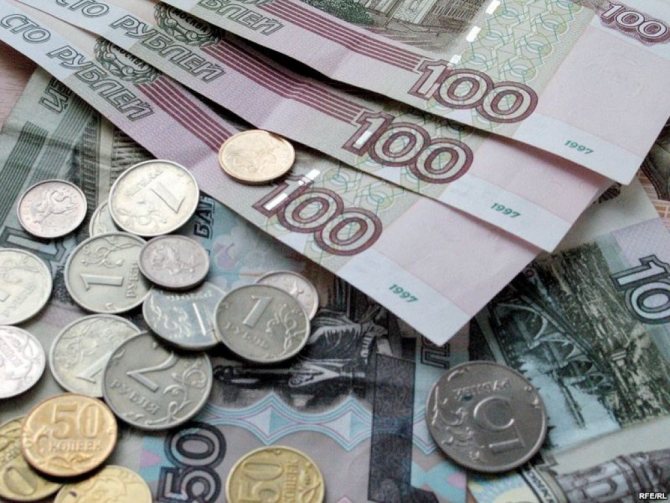
There is no special benefit for migrants in the country. However, foreigners who were unable or unwilling to get a job are entitled to receive unemployment benefits on the same basis as native Danes. About 50% of migrants use this. This category of immigrants has a particularly cold attitude among the local population, who provide benefits for beneficiaries through their taxes.
Since 1997, a unique system has been in place to encourage foreigners to leave Denmark. Those who make such a decision are paid 100 thousand crowns (13,400 €). To take advantage of the benefit, a foreigner must apply to leave the country. Even before crossing the border, he will be charged 11% of the total amount. He will receive the remaining 89% of the benefit upon returning to his historical homeland or to a third country.
In order to avoid an influx of foreigners wishing to take advantage of this program, the requirements for residence permit applicants in the Scandinavian kingdom are significantly more complicated. In fact, only students, those under contract with a local employer, or relatives of Danes can immigrate to Denmark.
Living wage in European countries
The Kingdom of Denmark is a small country in Northern Europe with a developed high-tech economy, a reliable social protection system and a flexible labor market that allows qualified job seekers from different countries to find work in Danish companies and effectively integrate into the local professional environment. In terms of living standards and average wages, Denmark ranks highest in the European Union. Many authoritative publications, including the Doing Business agency, note that opening and running a business in Denmark is easier and more profitable than in most countries in the world. Danish universities provide quality education based on modern teaching methods, so the local workforce is highly qualified, motivated and productive.
Average salary in Denmark
The data obtained are analyzed and grouped into nine main areas: Indicator of the Republic of Belarus Quality of life 2 38 Ensuring civil rights 3 39 Investment climate 4 80 Freedom of enterprise 11 24 Cultural influence culture 16 2 Military potential 27 2 Interest in life 35 56 Influence in world culture 39 16 Population mobility 58 8 According to the generalized list, Denmark was not included in the top 10, taking the honorable 5th place.
- food – approximately half of the basket;
- essential goods of the non-food group – about a quarter of the cost;
- other services, including fees for utilities - the remaining amount.
- The composition of the consumer basket is subject to the laws of the constituent entities of the Russian Federation.
- The cost of living is a conditional figure; it can differ significantly depending on the age of the consumer and the region of the Russian Federation.

